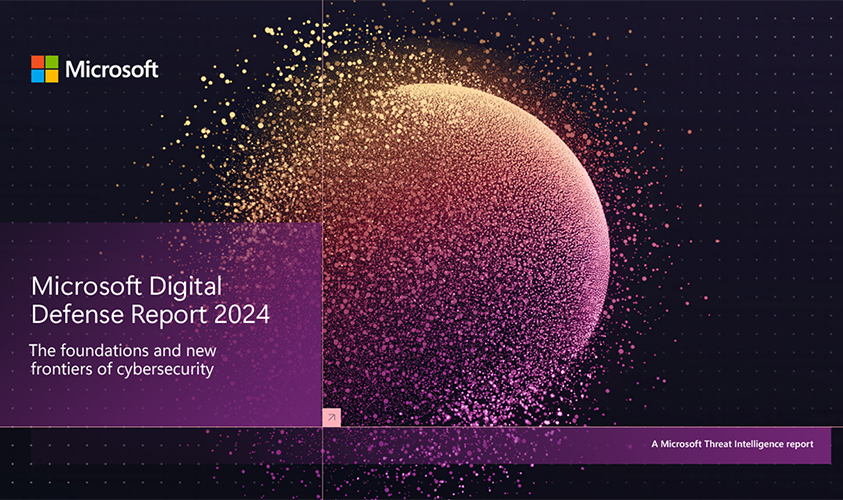Inovasys, founded in 2014, has been a leader in providing advanced technology solutions. By 2020, it became known as a service provider. The company aims to be the best partner for businesses looking to improve their operations with digital technology.
Articles & Press Release

Escalating Cyber Threats Demand Stronger Global Defense and Cooperation
In a world where digital landscapes are becoming increasingly complex, the rise in cyber threats calls for stronger global defense mechanisms and enhanced cooperation. The recently published 2024 Microsoft Digital Defense Report sheds light on the growing magnitude and sophistication of cyberattacks, reporting that Microsoft alone faces over 600 million cybercriminal and nation-state attacks daily.
The report underscores the evolving nature of these threats, where nation-state actors are now outsourcing parts of their operations to cybercriminal groups, sharing tools, techniques, and objectives. Particularly notable is the involvement of Russian, Iranian, and North Korean state-affiliated actors in activities that range from espionage to financial gain through ransomware and other destructive tactics. These actors leverage cybercrime not only to achieve military or political goals but also to monetize their efforts, demonstrating the blurred lines between geopolitical objectives and cybercrime.
The Role of Nation-State Actors in Cyber Operations
Nation-state actors continue to operate as key players in cyber conflicts. The report highlights that Russian threat actors, for example, have increasingly relied on cybercriminals to execute espionage operations, particularly targeting the Ukrainian military and NATO-member states. Iran, similarly, has leveraged ransomware in a politically motivated cyber operation, blending economic gain with propaganda. Meanwhile, North Korea has entered the ransomware domain, using custom malware like FakePenny to attack organizations in aerospace and defense. These operations are often concentrated around areas of geopolitical tension. For instance, Ukraine and Israel remain key targets for Russian and Iranian cyber activities, especially in light of the ongoing Russia-Ukraine war and the Israel-Hamas conflict. China, on the other hand, continues its focus on Taiwan and Southeast Asia, engaging in persistent espionage efforts.
Financially Motivated Cybercrime on the Rise
Beyond nation-state threats, financially motivated cybercrime continues to escalate. The Microsoft Digital Defense Report observes a dramatic rise in ransomware attacks, increasing 2.75 times year-over-year. However, there is a silver lining: ransomware attacks reaching the encryption stage have decreased, thanks to improved defensive measures. Still, cybercriminals continue to exploit social engineering tactics like phishing and identity compromise to gain initial access.
Furthermore, the report points to a 400% surge in tech scams, highlighting how rapidly these operations can turn over—with over 70% of malicious infrastructure active for less than two hours. This underscores the urgent need for agility in cybersecurity responses, as threats evolve faster than they can often be detected.
The Growing Threat of AI in Cyberattacks
Threat actors are now experimenting with generative AI to enhance their operations. While China has primarily used AI to generate imagery for influence operations, Russia has focused on audio-based AI to disseminate disinformation. However, AI is a double-edged sword. While threat actors explore its potential, cybersecurity professionals are leveraging AI’s capabilities to significantly reduce response times, identifying and mitigating threats more efficiently than ever before.
The Importance of Global Cooperation in Cyber Defense
The escalating nature of cyberattacks demands a coordinated response that goes beyond individual entities. Microsoft advocates for both stronger defense mechanisms and deterrent policies to curb malicious activities. The company’s Secure Future Initiative emphasizes the need for cooperation between the private sector and governments to effectively counter cyber threats.
Deterring attacks by denying intrusions and imposing consequences for cybercriminal behavior are two strategies that must work in tandem. While international norms on cyberspace conduct are a step in the right direction, the absence of enforceable consequences has allowed these attacks to persist and grow in scale.
Conclusion: A Call for Global Action
As the world continues to face increasing cyber threats, collaboration is more important than ever. The public and private sectors must work hand-in-hand to build resilient defenses, deter attackers, and enforce meaningful consequences.
Contact Inovasys today to learn more about our Red Team services and how we can help you secure your organization from evolving Cyber Threats.

